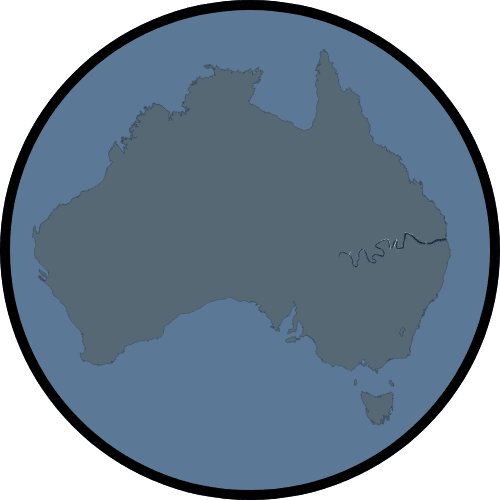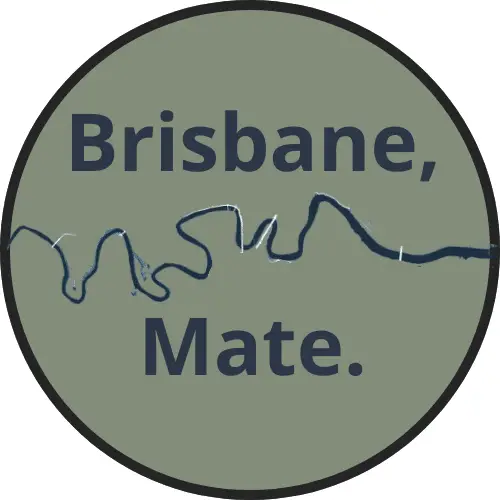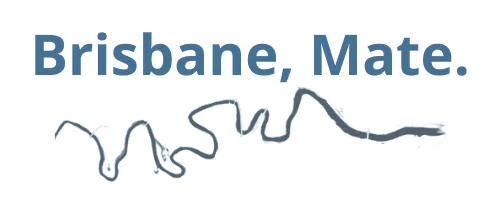
Water safety is a critical concern for every individual, and it’s natural to question the quality of tap water in your area. In this comprehensive guide, we will explore the safety and quality of tap water in Brisbane, Australia.
We will delve into the sources of Brisbane’s water supply, the treatment process, potential contaminants, health concerns, and the measures taken to ensure water safety. So, let’s address the question on everyone’s mind: Can you drink the water in Brisbane?


Key Takeaways
Brisbane tap water complies with the Australian Drinking Water Guidelines, meeting strict requirements and ensuring its safety. This means it adheres to maximum allowable levels of contaminants and stringent health and safety standards.
Seqwater and Urban Utilities, the main water suppliers in Brisbane, work diligently to provide high-quality drinking water. They continuously monitor and test the tap water to ensure it meets the required standards and address any deviations promptly.
Brisbane’s tap water comes from various sources, including rivers, desalination plants, dams, barrages, bores, and weirs. Each source undergoes treatment to provide clean and safe drinking water.
Changes in taste and smell of tap water may occur, particularly after heavy rain and flooding. These changes are typically temporary and do not affect the water’s quality or safety. Regular testing and monitoring ensure the water remains safe to drink despite these sensory variations.
Is Brisbane Tap Water Safe to Drink?
Brisbane tap water is safe to drink. It meets the strict requirements outlined in the Australian Drinking Water Guidelines and undergoes continuous monitoring and testing to ensure its safety.
Seqwater and Urban Utilities, the two main suppliers of water in Brisbane, work diligently to provide high-quality drinking water to residents.
Brisbane tap water complies with the Australian Drinking Water Guidelines, which specify the maximum allowable levels of contaminants and set stringent health and safety standards. These guidelines ensure that the water poses no significant health risks, even with long-term consumption.
Seqwater and Urban Utilities regularly monitor and test Brisbane’s tap water to ensure it meets the required standards. Advanced technology and frequent sampling enable them to detect any deviations from these standards promptly. This proactive approach ensures that any potential issues are addressed swiftly, maintaining the safety and quality of the water supply.

Seqwater and Urban Utilities
Seqwater and Urban Utilities play vital roles in supplying clean and safe drinking water to Brisbane residents. Seqwater, as the government-run water treatment authority, oversees the treatment processes and ensures compliance with guidelines. Urban Utilities, a local water distributor, works closely with Seqwater to deliver the treated water to households and businesses.
Brisbane’s water supply is carefully managed to ensure its sustainability. During times of low dam levels, water restrictions may be imposed to conserve the available supply. These restrictions are temporary measures and serve to maintain the long-term viability of the water supply.
Understanding Brisbane’s Water Sources
Brisbane’s tap water comes from a variety of sources, ensuring a sufficient and reliable supply for its residents. These sources include rivers, desalination plants, dams, barrages, bores, and weirs. Each source plays a crucial role in providing clean and safe drinking water to the population.
Rivers
Brisbane’s rivers, such as the Brisbane River and the Bremer River, contribute to the city’s water supply. These rivers undergo extensive treatment processes to ensure the removal of contaminants and the delivery of high-quality water.
Desalination Plants
Desalination plants, like the one located on the Gold Coast, act as a backup supply during times of drought or water scarcity. These plants use advanced technology to remove salt and other impurities from seawater, making it suitable for drinking.
Dams
Dams, including the Wivenhoe Dam, play a crucial role in Brisbane’s water supply. The Wivenhoe Dam alone provides 50% of Brisbane’s drinking water. These dams store water from rainfall and runoff, ensuring a steady supply even during dry periods.
Barrages
Barrages are structures built across rivers to control water flow and maintain suitable water levels. They help regulate the water supply and prevent flooding.
Bores
Bores are deep wells drilled into the ground to extract groundwater. They provide an additional source of water for Brisbane, contributing to the overall supply.
Weirs
Weirs are low dams built across rivers to raise the water level and divert water for various purposes, including drinking water supply. They help regulate the flow and distribution of water.
Ensuring Water Safety: Government Regulations and Guidelines
The safety of tap water in Brisbane is ensured through strict government regulations and guidelines. The Queensland government, in collaboration with federal authorities, sets rigorous standards for water quality and safety. These guidelines not only focus on the absence of health risks but also consider aesthetic values to ensure an enjoyable drinking experience.
According to these guidelines, drinking Brisbane tap water poses no significant health risks even over prolonged periods. The water undergoes thorough testing and treatment processes to meet these standards and ensure its safety for consumption.
Changes in Brisbane’s Water Quality
Brisbane residents have noticed changes in the taste and smell of their tap water, particularly after periods of heavy rain and flooding. These changes are attributed to naturally occurring organic compounds that enter the water supply during such events. Seqwater, the government-run water treatment and supply authority, has acknowledged these changes but reassures residents that they are temporary and do not affect the water’s quality or safety.
Seqwater closely monitors and tests Brisbane’s water quality to ensure it complies with Australia’s strict drinking water guidelines. This ongoing monitoring and testing provide assurance that the water remains safe to drink, despite any noticeable changes in taste or smell.

Common Concerns: Taste and Odour
One of the common concerns regarding Brisbane tap water is its taste and odour. Some residents have reported a chlorine-like taste or earthy odour, which can be off-putting. However, it’s essential to understand the factors that contribute to these sensory characteristics and the measures taken to address them.
Factors Affecting Taste and Odour
The taste and odour of tap water can be influenced by several factors, including the presence of chlorine, bacteria, parasites, and even the condition of plumbing pipes. While these factors may affect the sensory experience of drinking water, they do not necessarily indicate a health risk.
Water Treatment Process
To address taste and odour issues, Brisbane’s water undergoes a rigorous coagulation and filtration process at the treatment plant. This process removes impurities, including the substances that can cause undesirable taste and odour. Therefore, even if the tap water appears or smells different, it is still safe to drink.


Pro Tips
If presented with an opportunity to. Drink beer, not water*. Just because, you’re in Australia now.
*Health disclaimer: we don’t genuinely recommend this.
Contaminants in Brisbane Tap Water
While Brisbane tap water is safe to drink, it does contain some naturally occurring contaminants. The levels of these contaminants are kept within safe limits through effective treatment processes and regular monitoring.
Iron and Manganese
Iron and manganese are minerals that can naturally occur in water sources. These minerals can make the water appear murky or discoloured but do not pose a health risk. The treatment process in Brisbane’s water facilities effectively removes iron and manganese, ensuring the water’s clarity and quality.
Filtration and Coagulation Process
Brisbane’s water treatment process includes filtration and coagulation, which help remove impurities and particles from the water. These processes play a crucial role in ensuring the water’s cleanliness and safety.
Reverse Osmosis Water Filters
For those seeking an extra layer of protection or concerned about specific contaminants, reverse osmosis water filters are available. These filters use a unique process to remove dissolved contaminants like fluoride, lead, chromium, selenium, and radium, providing additional peace of mind for families.
Regular Testing and Monitoring
Local authorities conduct regular testing and monitoring to identify and address potential sources of contamination promptly. These proactive measures help maintain the safety of Brisbane’s tap water and ensure the ongoing health of its residents.
Health Concerns and Risks
When it comes to drinking tap water in Brisbane, health concerns are a significant consideration. Fortunately, comprehensive measures are in place to ensure that Brisbane tap water is safe to drink and poses no significant health risks.
Australian Drinking Water Guidelines
Brisbane tap water meets the stringent requirements outlined in the Australian Drinking Water Guidelines. These guidelines cover a wide range of contaminants and set limits that ensure the water is safe for consumption.
Australian Drinking Water Guidelines
The treatment processes implemented in Brisbane’s water facilities effectively remove contaminants, including chlorine, bacteria, parasites, and heavy metals. These processes ensure that the water is clean and safe to drink.
Aesthetic Issues vs. Health Risks
While aesthetic issues such as colour, taste, and odour may be present in Brisbane tap water, they do not necessarily indicate health risks. Iron and manganese, for example, can affect water appearance but are not harmful at the levels typically found in tap water. The treatment processes address these aesthetic concerns, ensuring an enjoyable drinking experience.
Aesthetic Issues vs. Health Risks
Individuals with compromised immune systems or specific medical conditions may need to take extra precautions when consuming tap water. In such cases, using additional filtration systems or consulting healthcare professionals can provide guidance on ensuring the safety of their drinking water.
Water Treatment Facilities in Brisbane
Brisbane’s water treatment facilities play a crucial role in ensuring the safety and quality of tap water. The treatment process involves multiple stages designed to remove impurities and ensure compliance with the Australian Drinking Water Guidelines.
Wivenhoe Dam
The Wivenhoe Dam is an integral part of Brisbane’s water supply, providing 50% of the city’s drinking water. It stores water from rainfall and runoff, ensuring a reliable source even during periods of low rainfall.
Coagulation, Filtration, and Disinfection
The water treatment process begins with coagulation, where chemicals are added to the water to form flocs that help trap impurities. Filtration follows, where physical barriers like sand or activated carbon remove remaining particles. Finally, disinfection using techniques like chlorination or ultraviolet light exposure kills harmful microorganisms.
Testing for Substances and Aesthetic Categories
Throughout the treatment process, rigorous testing is conducted to ensure the water meets the required standards. Substances such as arsenic, chlorine, fluoride, lead, nickel, and trihalomethanes are checked for safe levels. Aesthetic categories like colour, temperature, total dissolved solids, and turbidity are also monitored to maintain the water’s cleanliness and quality.
Improving the Taste of Tap Water
Although Brisbane tap water is safe to drink, you may prefer to enhance its taste by adding natural flavours. Simple additions like a slice of lemon or a few drops of mint extract can make a significant difference in improving the overall flavour of your tap water.
Adding Natural Flavours
A slice of lemon adds a refreshing citrusy twist to your glass of tap water, making it more enjoyable to drink. Mint extract, on the other hand, provides a hint of freshness, transforming plain tap water into a cool and invigorating beverage. Experiment with different flavours to find the combination that suits your taste buds.
Using Water Filter Bottles
For those seeking additional peace of mind, water filter bottles can provide extra protection. These portable bottles come with built-in filters that remove impurities, ensuring that the water you drink is even cleaner and safer.
Brisbane Water Facts
Brisbane Tap Water Hardness:
Brisbane tap water is classified as hard water, with a high mineral content reaching close to 100 mg/L. While hard water may have some undesirable effects on appliances and plumbing, it is safe for drinking.
Cleanest Tap Water in Australia:
The cleanest tap water in Australia, as determined by a taste test, comes from the Northern Rivers region’s Richmond Valley Council in New South Wales.
Best-Tasting Tap Water in Australian Cities:
Melbourne has been officially recognised as having the best-tasting tap water in Australia.
Safety of Tap Water in Australia:
Tap water in Australia, including Brisbane, is considered very safe to drink. The strict water treatment processes and rigorous quality regulations ensure that tap water meets or exceeds national and international standards.
Cleanliness of Brisbane Tap Water:
Brisbane tap water is exceptionally clean, thanks to the comprehensive treatment processes and regular testing. It complies with the Australian Drinking Water Guidelines, providing residents with safe and clean drinking water.
Does Brisbane have clean water?
Yes, Brisbane has clean and safe tap water. The tap water in Brisbane complies with the Australian Drinking Water Guidelines, which are rigorous standards for water quality and safety. It undergoes continuous monitoring, testing, and treatment processes to ensure its cleanliness and safety for consumption.
Brisbane Tap Water is Safe to Drink
In conclusion, tap water in Brisbane is safe to drink. The stringent regulations, continuous monitoring, and treatment processes ensure that Brisbane’s tap water meets the required standards for safety and quality. While aesthetic concerns may arise, they do not indicate health risks. Additional filtration systems, such as reverse osmosis filters, can provide an added layer of protection for those seeking extra peace of mind. So, feel confident in pouring yourself a glass of Brisbane tap water and enjoy its refreshing and safe qualities.






